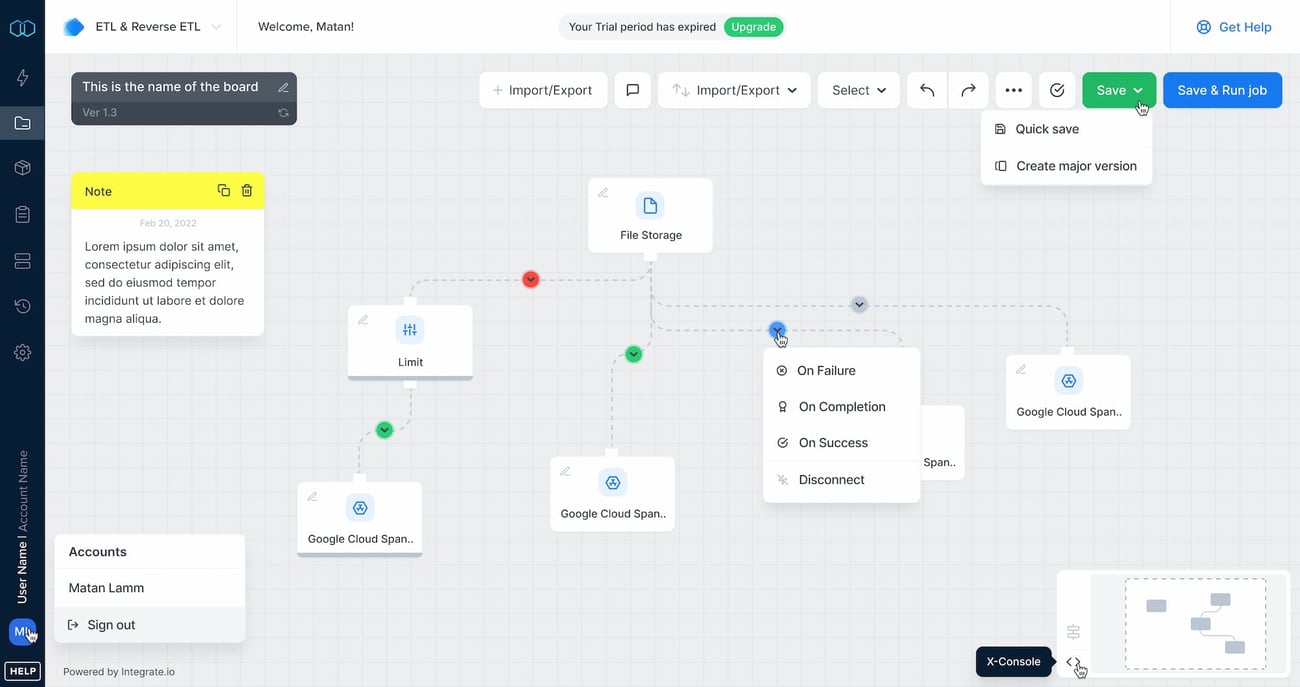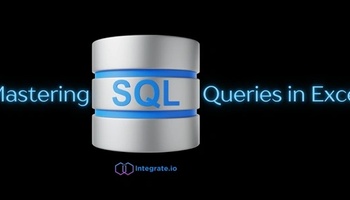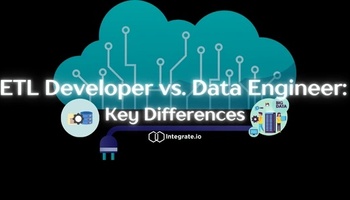Hevo Data is a cloud-based ETL platform with a REST API that manages data pipelines. Chief Technology Officers (CTOs), software developers, and data analysts use Hevo to move data from one location to another for better data-driven decision-making. Despite these benefits, many ETL users are looking for a Hevo alternative —Hevo Data requires vendor lock-in, lacks compliance and security certifications, and only has around 30 SaaS native connectors, meaning users need to know how to code if they want to build more complex pipelines.
Here are our key takeaways from top Hevo Data alternatives:
- Hevo alternatives offer greater built-in data privacy and data security compliance measures.
- Integrate.io: cloud-native ETL platform with an easy-to-use interface, over 200 connectors, handles ETL/ELT, compliance with HIPAA, SOC 2, SOX, PCI, GDPR, flat-rate pricing.
- Talend: open-source data integration platform, that offers fast deployment and unified platform, but with opaque pricing, support for GDPR and CCPA, and requires contracting fees for pipeline creation and maintenance.
- Fivetran: cloud-based data integration platform, easy to use for data extraction and loading, requires SQL knowledge for data transformation, "free forever" plan, but with unpublished and potentially costly pricing.
- Stitch: ELT platform with 100+ connectors, support for data privacy and security legislation measures, subscription plans start from $100/month but lack features included in higher plans.
- Verdict: Integrate.io offers more connectors, handles ETL/ELT, and has better compliance certifications than Hevo; Talend is complicated with opaque pricing and requires coding knowledge; Fivetran is easy to use but limited to ELT and has unpublished pricing; Stitch offers good privacy and security measures but lacks some features in lower subscription plans.
In this article, we will compare the features, pricing, and use cases of Integrate.io, Talend, Fivetran, and Stitch to help you decide which is best for your data integration needs.

Integrate.io
What it is: Integrate.io is a cloud-native ETL platform with an easy-to-use, no-code, point-and-click user interface.
Features and Benefits: Integrate.io has several features you won't find on Hevo, such as a Salesforce-to-Salesforce native connector that moves data from Salesforce to a second location and then back again. Plus, you can benefit from over six times the number of out-of-the-box connectors for data integration. (Integrate.io boasts over 200 connectors for warehouses, databases, CRM systems, ERP systems, social media platforms, and more.)
Unlike Hevo, Integrate.io handles ETL and ELT, or reverse ETL, and seamlessly moves data from SaaS sources, apps, databases, data stores, and more. Depending on your data integration method, you can either extract and transform data into the correct format and load it to a warehouse or lake for big data analytics (ETL), or extract data and load it to a final destination before transforming it into a usable format for analytics (ELT). Integrate.io also has,
- Unlimited users and data rows.
- No vendor lock-in ensures flexibility, addressing a critical Hevo limitation
Other benefits include an easy-to-use REST API, no vendor lock-in, and 24/7 support for all users.
Pricing: Integrate.io pricing is tailored exactly to each client's needs and requirements with a usage-based component couple with features and functionality. Clients choose which level of platform usage they will require and then which features and functionality to create a custom plan to fit their use case.
Verdict: Integrate.io trumps Hevo on security and compliance certifications. While Hevo only supports HIPAA, Integrate.io complies with HIPAA, SOC 2, SOX, PCI, GDPR, and more.


Talend
What it is: The Talend platform provides open-source software and services for data integration, management, and quality. It offers integration and cloud storage for enterprise applications and Big Data for organizations of all sizes.
Features and Benefits: Talend touts faster deployment, future-proofing, and a unified platform as some of its benefits. Much of the platform is open-source, so because we can download a lot of the platform's functionality for free, Talend also claims it's less expensive than other data integration platforms — however, this is only true of organizations that do not need extensive integrations or enterprise solutions. Talend's open-source offering is free but lacks functionality for large-scale or complex pipelines without expensive enterprise upgrades. Also, Talend requires extensive coding knowledge for setup and maintenance, making it less accessible for non-technical teams
Pricing: Though it's open-source by nature, and there's an on-demand demo offered for Stitch integrations, Talend doesn't publish any of its plan prices online. For a demo of any plan above the Stitch integration, potential users must request the demo through sales. This makes it hard to know whether Talend provides more value than Hevo without concrete apples-to-apples figures. However, with support for data governance frameworks like GDPR and CCPA, and the ability to handle both ETL and ELT, Talend may have the upper hand.
Verdict: Compare Talend to Integrate.io as a Hevo Data alternative, however, and things become much clearer. Integrate.io is a low-code ETL and ELT tool with flat-rate, open pricing, while Talend is far more complicated and opaque with pricing. And if you don't know how to code? Integrate.io requires no coding knowledge, but with Talend, you should expect to pay contracting fees for pipeline creation and maintenance.

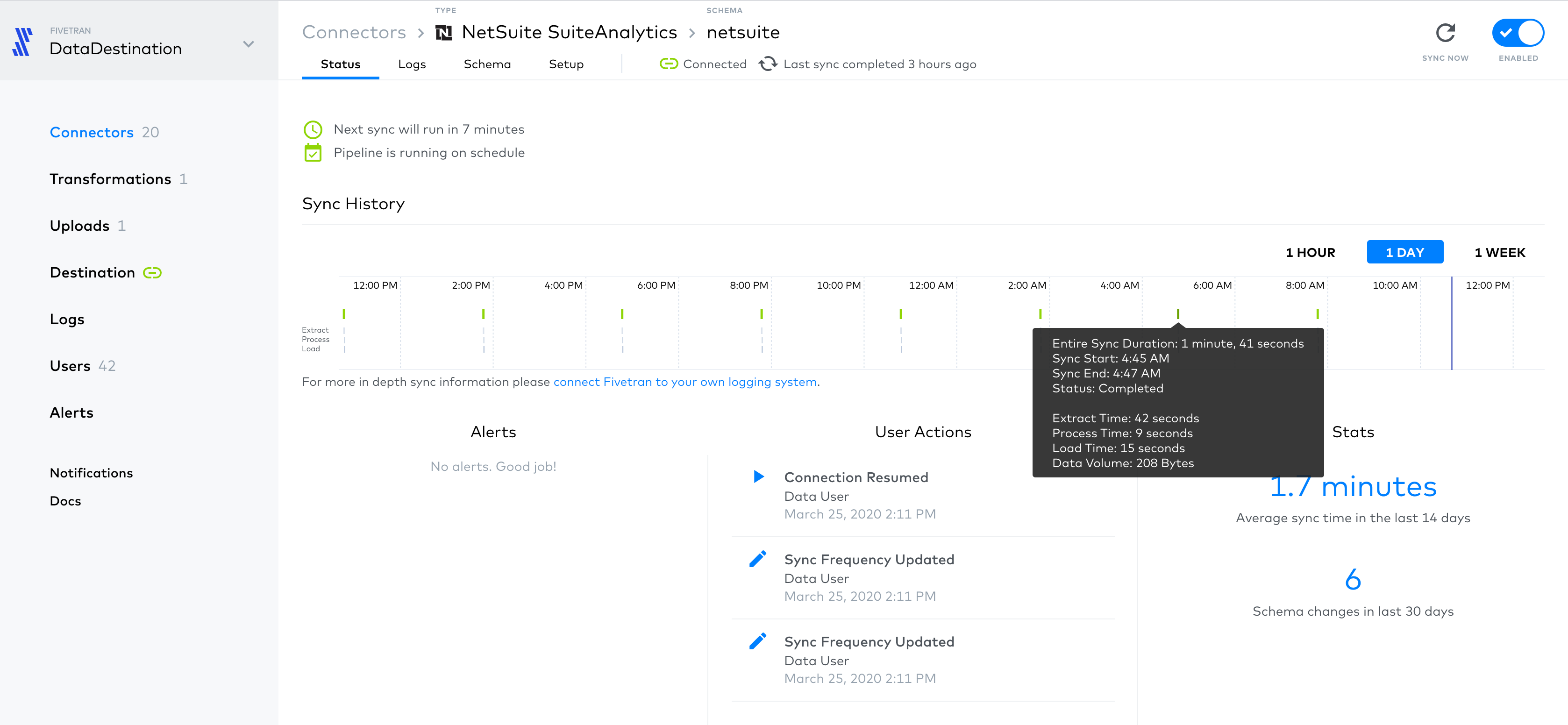
Fivetran
What it is: Fivetran is a cloud-based data integration platform for any organization that needs to pull data from one source and load it into a central data warehouse.
Features and Benefits: Fivetran doesn't require a lot of requisite coding knowledge and is relatively easy to use for users who want to extract data from one source and load it to another source. In order to transform this data, however, users need working SQL knowledge or to opt for one of Fivetran's pre-built SQL models.
Pricing: Although Fivetran offers a sort of "free forever" plan (for organizations needing 500,000 or fewer connections per month), you can start any Fivetran subscription with a free trial. Even though paid plan per-line fees scale down with consumption, Fivetran pricing isn't published — so, the more lines of data required, the higher the monthly fees, which can prove costly during months with loads of data, not to mention it's not possible to budget for.
Verdict: Fivetran could be a worthy Hevo Data alternative if it handled more than just ELT, which could limit your data transformation goals somewhat. Unlike Hevo, Integrate.io, and Talend, you can only move data via Fivetran to a data warehouse, not a data lake. Plus, you'll need SQL skills if you want to build more complicated pipelines for data analysis. However, bonus points to Fivetran for several times more out-of-the-box connectors than Hevo.


Stitch
What it is: Stitch Data, now a Talend product, is an ELT, or extract —> load —> transform, platform for organizations of all sizes.
Features and benefits: Stitch offers 100+ connectors and support for data privacy and data security legislation measures such as GDPR, HIPAA, and CCPA.
Pricing: Fees for Stitch subscriptions begin with the Standard Plan at $100/month for 5 million rows of data and scale up. The Standard Plan lacks a lot of the support included in the Advanced ($1,250/month) and Premium ($2,500/month) plans.
Verdict: Stitch manages ELT, not ETL, so you can't transform data into your preferred format until after you've loaded that data into a data warehouse or data lake. It also has a similar pricing structure to Hevo, where you pay more money for the amount of data you consume. Plus, with annual and month-to-month contracts, you'll still have a problem with vendor lock-in.
Still, Stitch has advantages over Hevo, including around 100 connectors and support for GDPR and CCPA. Unlike Hevo and Integrate.io, there's no REST API, but you can integrate Stitch with other platforms through the Stitch Connect feature.

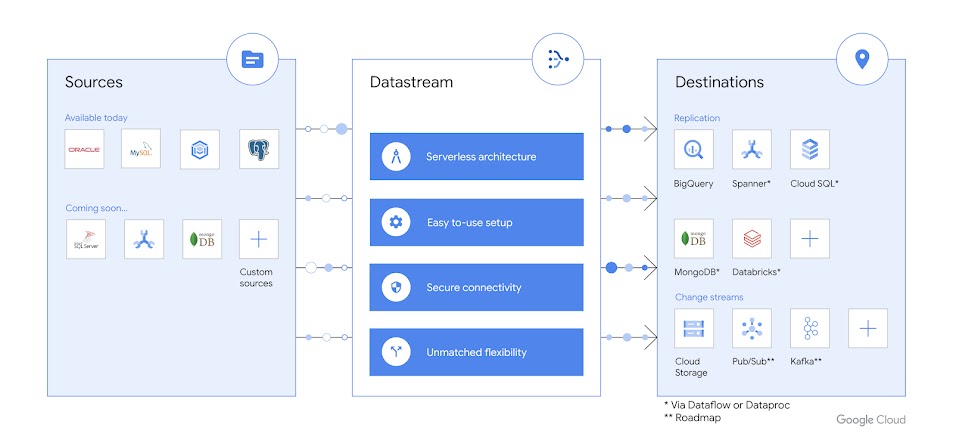
Datastream (aka, Alooma)
What it is: Datastream is a real-time data pipeline platform that allows customers to centralize their data to Google BigQuery, Cloud Spanner, Dataflow, and Data Fusion. The company’s Code Engine provides a solution for writing custom code to enrich and cleanse data.
Features and benefits: Datastream complies with data governance frameworks such as HIPAA, GDPR, and CCPA.
Pricing: Datastream pricing depends on a few factors, including the cloud region you choose. In addition to change data capture (CDC) usage, you’ll pay separately for any resources used to transfer, store, or process your data, like BigQuery or Cloud Storage.
Verdict: Users consider Datastream to be an inferior alternative to Hevo. (The platform has an average score of 4/5 on G2.com compared to Hevo's 4.8/5.) That might result from Google's acquisition of Datastream (formerly known as Alooma), in which Google drastically limited the number of available data destinations: for some time, you could only move data into Google BigQuery. Datastream also requires knowledge of Python for pipeline-building, so if you don't know how to code or you don't have a coding expert on your team, Datastream might not be a good option.
That said, Datastream is a natural Hevo Data alternative if you need to comply with data governance frameworks like GDPR. Hevo only offers HIPAA support.
Why Integrate.io is the Best Hevo Alternative
Hevo requires vendor lock-in, has limited security and compliance certifications, and only comes with only around 30 SaaS native connectors, so expect to code more complex data pipelines from scratch. Thankfully, various Hevo Data alternatives could help you to achieve your data transformation objectives. Consider Integrate.io, which builds complicated data pipelines with little to no code whatsoever. Its simple point-and-click UI lets you connect to 200+ native connectors, streamlining both the ETL and ELT processes considerably. Other features include 24/7 support, flat-rate pricing, no vendor lock-in, and support for HIPAA, GDPR, SOC2, and more. Finally, its Salesforce-to-Salesforce connector, a feature you won't find on many other data pipeline platforms, lets you get more value from CRM data.
Consider trying Integrate.io yourself with a free 14-day trial, or schedule an intro call and one of our experts will walk you through the setup process so you can get the most from your trial.



